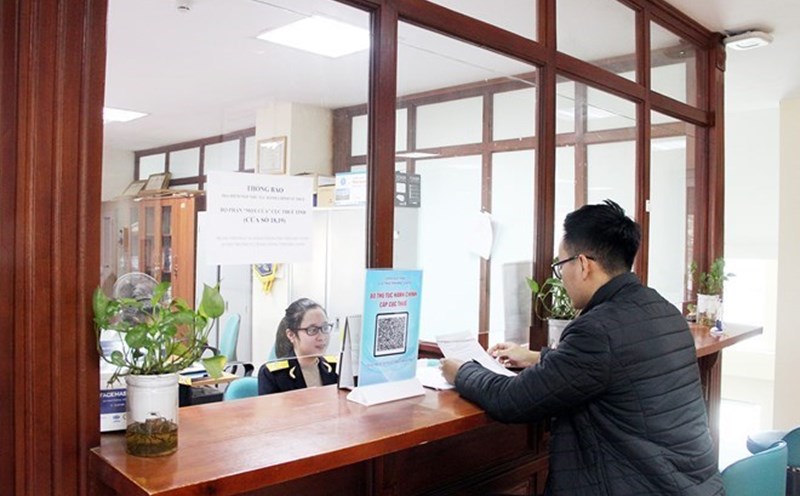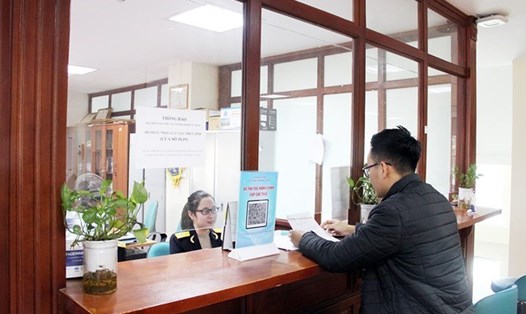Accelerate the development of legal documents
In 2025, the Tax Department was assigned to preside over 14 projects, including 1 Law, 9 Decrees and four Circulars. In particular, the dossier to propose the development of a Law on replacement Tax Administration was submitted by the Ministry of Finance in a document to collect opinions from ministries, branches and localities on March 10, 2025.
For the 9 Decrees, the Tax Department has completed two Decrees, including Decree 20/2025 amending Decree 132/2020 on joint transactions and Decree 49/2025 regulating the debt threshold applicable to temporary suspension of exit. In addition, two Decrees are being submitted to the Government, including the Decree amending Decree 123/2020/ND-CP on invoices and documents and the Decree guiding Resolution 107/2023/QH15 on global minimum tax.
Currently, the Ministry of Justice is reviewing two Decrees on extending the payment period for value added tax (VAT), corporate income tax (CIT), personal income tax (PIT) and land rent in 2025; along with the Decree on extending the payment period for special consumption tax (SCT) for domestically manufactured and assembled cars. Some other Decrees such as the Decree on tax management for business on e-commerce platforms are in the process of being accepted and revised. Meanwhile, the Tax Department is developing a Decree amending Decree 126/2020 with an issuance date of June 2025, along with a Decree amending Decree 125/2020 on administrative sanctions expected to be issued in July 2025.
Regarding the 4 Circulars, the Tax Department is urgently researching, completing and collecting opinions from ministries, branches and localities to ensure implementation progress.
Focus on implementing the March work program
Based on the requirements of tasks in the new situation, the Tax Department has directed tax authorities at all levels to carry out a number of key and urgent tasks.
First, urgently review the work and tasks that the new unit receives to develop a timely implementation plan, while reviewing and speeding up the implementation progress of the tasks and work programs that the unit is chairing. Special attention is paid to implementing projects and tasks under the 2025 Work Program on schedule, with a completion date of the first quarter of 2025.
Second, continue to thoroughly strengthen discipline, order, rectify working style, attitude, and behavior of civil servants and public employees of your unit in performing public duties and promptly handle violations. Focus on resolving and handling work according to the new organizational model, focus on handling the handover work, especially the arising work and situations, so as not to affect the production and business activities of people and businesses.
Third, closely follow and promptly handle problems in the organization of tax authorities at all levels during the reorganization process; continue to coordinate with regional Tax branches to improve personnel and assign civil servants according to the new apparatus organization to ensure smooth operation; establish working groups directly at regional Tax branches to guide and remove problems in the process of operating the new apparatus.
Fourth, develop and implement a plan to review the country's revenue sources for each taxpayer, by industry, location, and group of subjects, to serve the work of making estimates, managing revenue and evaluating the effectiveness of tax authorities' management.
Fifth, focus on implementing topics against revenue loss, buying and selling invoices, tax refund fraud, and tax evasion.
Sixth, continue to implement and complete the Project on restructuring the IT system of the Tax sector in sync with the Project on restructuring professional processes towards digital transformation and the Project on streamlining the tax sector apparatus according to Resolution 18-NQ/TW.
Seventh, implement the review and reduction of administrative procedures, improve the quality of online public services throughout the process, and develop a detailed implementation plan to strive to reduce at least 30% of administrative procedures in the tax sector.
Eighth, coordinate with press agencies to promote communication on key contents in the results of tax implementation such as: e-commerce tax management, preventing invoice fraud, digital transformation, etc.











